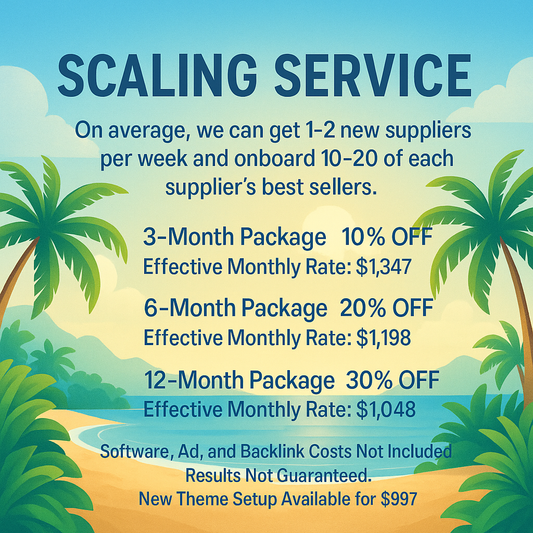
Best Small Business Phone System: Essential Features and Top Options

Choosing the right phone system is crucial for small businesses. The best small business phone systems offer reliable communication, scalability, and essential features that enhance productivity. As technology evolves, business owners must find a solution that meets their needs without breaking the bank.
Small business owners face many options, and navigating through them can be tough. An effective phone system can help streamline operations, improve customer service, and foster teamwork among employees. Understanding the available features and benefits can lead to smarter choices.
This blog post will highlight the top small business phone systems, detailing their key features and advantages. By exploring these options, business owners can find the best fit for their unique requirements and ensure clear communication with clients and team members alike.
Quick List: Best Small Business Phone System
Understanding Small Business Phone Systems
Small business phone systems play an essential role in communication. They help businesses manage calls efficiently, improve customer service, and enhance overall operations. There are different types of phone systems, each with various benefits and key features.
Types of Phone Systems
There are several types of phone systems for small businesses. These include traditional landline systems, Voice over Internet Protocol (VoIP), and cloud-based systems.
- Landline Systems: These are standard phone lines that connect to the public telephone network. They are reliable but may lack modern features.
- VoIP Systems: VoIP allows calls over the internet. It offers flexibility and often comes with advanced features. Features may include video calling and integration with other software.
- Cloud-Based Systems: These systems do not require physical hardware. They operate through an internet connection, providing scalability and ease of use.
Each type has its own advantages and is suited for different business needs.
Benefits of a Dedicated Phone System
A dedicated phone system offers numerous benefits for businesses. It ensures better communication and enhances customer satisfaction.
- Professional Image: Having a dedicated system shows customers that a business is serious and organized.
- Improved Call Management: These systems offer features like call routing and voicemail, which help in managing incoming calls effectively.
- Cost Efficiency: Many small businesses find that using VoIP or cloud systems reduces phone bills, especially with long-distance calls.
Such systems can also integrate with eCommerce platforms, improving customer interaction and support.
Key Features to Look For
When choosing a phone system, certain features should be prioritized. This helps in selecting the best option for specific business needs.
- Call Forwarding: This allows calls to be redirected to different numbers, ensuring that no call goes unanswered.
- Voicemail-to-Email: This feature sends voicemails as audio files to email, allowing quick access to messages.
- Scalability: The ability to add more lines or features as a business grows is crucial for long-term success.
Assessing these features can lead to a more effective and efficient communication system.
Top Small Business Phone System Providers
Choosing a small business phone system can greatly impact communication. Several providers offer unique features that cater to various business needs.
Grasshopper

Grasshopper is a popular choice for entrepreneurs and small businesses that need a professional phone system. It offers a virtual phone system that allows users to make and receive calls on their smartphones while displaying a business number. Grasshopper provides features like voicemail transcription, call forwarding, and business texting, making it easy for small business owners to stay connected on the go.
One key benefit is its simplicity—no additional hardware is required, making it perfect for those who need an easy-to-use solution. Grasshopper also offers toll-free numbers, unlimited extensions, and the ability to scale as your business grows.
Click here to start your free trial with Grasshopper today!
RingCentral

RingCentral provides a cloud-based phone system that is popular among small businesses. It offers voice, video, and messaging services all in one platform. This convenience helps teams stay connected, whether in the office or working remotely.
Key features include unlimited calling, video conferencing, and team messaging. It also integrates easily with other business tools like Salesforce and Google Workspace. RingCentral offers a user-friendly mobile app, enabling users to manage calls and messages on the go. The pricing plans are flexible, allowing businesses to choose options that fit their budget.
Ooma

Ooma is known for its affordable and flexible VoIP solutions. It offers services that cater to both home users and small businesses. The Ooma Office system includes features like call blocking, virtual receptionists, and video conferencing.
One standout feature is the Ooma mobile app, which lets users make and receive calls from their smartphones. Ooma also offers a free calling plan for U.S. calls, plus international options at low rates. Customers can set up their systems quickly, making it easy for new users to get started without technical expertise.
Nextiva

Nextiva focuses on providing a seamless communication experience for businesses. Its phone system combines voice calling with video, chat, and team collaboration features. Nextiva’s key benefits include call analytics and CRM integration, which help users track performance and improve customer service.
The platform is known for its high reliability and 24/7 customer support. Users can also access a mobile app for on-the-go call management. Nextiva plans are designed to scale with business growth, making it a good choice for companies looking for long-term solutions.
8x8

8x8 offers a robust communication system that caters to small businesses. It includes voice, video, chat, and contact center solutions. The platform is designed for flexibility, allowing teams to collaborate efficiently from anywhere.
Notable features include unlimited calling in the U.S. and Canada, as well as video conferencing for up to 100 participants. 8x8 also supports integrations with popular tools like Microsoft Teams and Slack. The competitive pricing and feature-rich plans make it a solid choice for small businesses seeking a comprehensive communication solution.
Vonage

Vonage is a well-known provider of VoIP services aimed at small businesses. It offers a variety of plans that include features like callt forwarding, voicemail-to-email, and mobile apps. Vonage is praised for its simple setup, enabling businesses to get started quickly.
The platform also features integrations with CRM systems, enhancing customer relationship management. Vonage provides competitive pricing options and customizable features to meet different business needs. This flexibility makes it an attractive option for small organizations looking to improve their communication systems.
Aircall

Aircall is a cloud-based phone system specifically designed for small businesses. It enables teams to set up a professional phone system in minutes without requiring any hardware. Aircall integrates seamlessly with popular business tools like HubSpot, Salesforce, and Slack, allowing for a more streamlined workflow.
Key features include call recording, real-time analytics, and interactive voice response (IVR). Aircall’s intuitive interface ensures ease of use, and its mobile app lets users stay connected on the go. It’s an ideal solution for businesses that value flexibility and integration.
OpenPhone

OpenPhone offers a modern business phone solution tailored for startups and small businesses. It combines calling, texting, and team collaboration into a single app. OpenPhone allows businesses to use their existing devices, eliminating the need for additional hardware.
Features include shared phone numbers, voicemail transcription, and call recording. It also integrates with platforms like HubSpot and Slack, enhancing team productivity. OpenPhone’s affordable pricing and simple setup make it a favorite among budget-conscious businesses.
Zoom Phone

Zoom Phone extends the functionality of the well-known Zoom platform into a comprehensive phone system for businesses. It provides cloud-based calling with enterprise-grade features, making it a strong contender for small businesses looking for a versatile solution.
Key features include unlimited calling, voicemail transcription, call queues, and seamless integration with the broader Zoom ecosystem. Businesses benefit from video conferencing and team messaging, all within a single platform. Zoom Phone’s scalability makes it suitable for growing businesses.
CallHippo

CallHippo is a user-friendly VoIP phone system designed for small and medium-sized businesses. It offers virtual phone numbers in over 50 countries, making it an excellent choice for companies with international operations.
Features include call analytics, call recording, and an automatic call distributor (ACD). CallHippo integrates with tools like Zoho CRM, Slack, and Zapier, improving team efficiency. Its intuitive dashboard and competitive pricing appeal to businesses seeking a straightforward and effective phone system.
Dialpad

Dialpad is a modern AI-powered business phone system built for flexibility and productivity. Designed with remote and hybrid teams in mind, it combines voice, messaging, and video in one unified platform.Key features include real-time call transcription, AI-powered voicemail summaries, and advanced call routing. Dialpad integrates seamlessly with productivity tools like Google Workspace, Microsoft 365, and Salesforce. Its intuitive interface and mobile-first design make it a popular choice for startups and small businesses aiming for smarter communication.
Click here to try Dialpad for free and simplify your business calls today!
Integration With Business Processes
Integrating a small business phone system with existing processes is essential for maximizing efficiency. Seamless connections with Customer Relationship Management (CRM) tools and eCommerce platforms can significantly improve communication and customer satisfaction.
CRM Integration
Integrating a phone system with CRM software allows businesses to connect calls directly with customer records. This means users can see important customer information before answering a call.
Key benefits include:
- Improved Customer Service: Agents can access past interactions, speeding up response times.
- Call Logging: Every call gets automatically logged into the CRM, reducing manual entry errors.
- Follow-Up Reminders: Users can set reminders based on previous conversations.
Popular CRM platforms like Salesforce and HubSpot offer specific integrations. This ensures that sales teams have all necessary details readily available during calls. It streamlines workflows and enhances overall productivity.
Ecommerce Platforms Compatibility
For businesses operating online, linking a phone system with eCommerce platforms is crucial. It allows for better customer support and order management.
Key features to look for include:
- Live Chat Integration: Combine phone and chat support for immediate assistance.
- Order Notifications: Receive alerts for new orders directly via phone.
- Customer Updates: Automatically inform customers about their order status through phone calls.
Integrating with platforms like Shopify or WooCommerce can be beneficial. This can lead to improved communication with customers and quick resolution of their issues. The result is a more efficient process that enhances customer trust and loyalty.
Security and Compliance
Small business phone systems need strong security and compliance measures. Protecting data and meeting industry standards are essential for keeping information safe and maintaining trust with customers.
Ensuring Data Protection
Data protection is vital for any business. Small business phone systems should use encryption to secure voice and data communications. This means that calls and messages are scrambled, making it hard for anyone to eavesdrop.
Businesses should also store sensitive information securely. Using secure servers and limiting access to only essential staff can help. Regular software updates are important too, as they often include security patches.
Utilizing features like two-factor authentication for account access adds an extra layer of security. This requires users to verify their identity through two different methods, making unauthorized access much harder.
Meeting Industry Standards
Meeting industry standards is a key part of compliance. Different sectors have specific regulations that phone system providers must follow. For example, businesses in healthcare must comply with HIPAA to protect patient information.
Many phone systems are designed to meet common standards like GDPR for data protection. This ensures that businesses handle personal data properly.
It's also beneficial for companies to regularly audit their phone systems. This helps identify any gaps in compliance and address them promptly. Regular training for employees on best security practices is essential too. This can reduce human errors that might lead to data breaches.
Customer Support and Satisfaction
Customer support and satisfaction are crucial for small business phone systems. Good support can help businesses run smoothly and address any issues quickly.
Assessing Support Services
When choosing a phone system, it is essential to evaluate the support services provided. RingCentral offers 24/7 customer service via phone and chat, ensuring quick assistance. Ooma provides online resources and phone support during business hours. Nextiva has a good reputation for its customer support, with live chat options available.
8x8 also offers comprehensive support, including online guides and phone assistance. Vonage boasts a dedicated support team, responding promptly to inquiries. Businesses should also consider response times, available channels, and service level agreements.
Customer Reviews
Reading customer reviews can provide insight into the effectiveness of support services. Many users of RingCentral praise its helpful staff and quick response times. Ooma often receives positive feedback for its straightforward support and user-friendly interface.
Nextiva customers highlight the efficiency of its support team, often resolving issues quickly. Users of 8x8 appreciate the thorough online resources and knowledgeable agents. Vonage’s reviews often mention its dedicated support team, though some users note longer wait times during peak hours. Gathering insights from reviews can help businesses measure satisfaction levels and the quality of support offered.
Future-Proofing Your Phone System
Choosing a phone system that will adapt to future needs is crucial for any small business. It helps ensure that the system can grow and change as the business evolves. Two key areas to focus on are scalability and innovative features.
Scalability Considerations
A scalable phone system allows a business to easily add or remove lines and features as needed. This is important for growth. When looking for a phone system, consider options that offer cloud-based services. These services often allow for easier expansion without requiring new hardware.
Key Points for Scalability:
- Additions and Removals: Ensure the system can handle more users or lines easily.
- Remote Work: Look for solutions that support a remote workforce. This flexibility keeps the business connected.
- Cost Management: Review pricing structures for adding features. Some systems may charge per line or offer bulk pricing.
Innovative Features to Consider
Modern phone systems should include features that enhance communication. These might include video conferencing, voicemail-to-email, and integration with customer relationship management (CRM) software.
Innovative Features to Enhance Efficiency:
- Mobile Apps: Look for systems with mobile applications. This allows employees to stay connected from anywhere.
- Call Analytics: Some systems provide detailed reports on call metrics. This can help improve communication strategies.
- Automated Assistants: Features like AI-powered chatbots can improve customer interaction and reduce wait times.
Picking a system with these considerations helps ensure it meets the current and future needs of a business.
Implementation and Training
Successful implementation and training are crucial for getting the most out of a small business phone system. Proper setup ensures smooth communication, while effective training helps staff use the system efficiently.
Setting Up Your System
Setting up the phone system begins with assessing the business's needs. This includes identifying the number of users and required features.
-
Choose a Provider: Research different service providers and select one that offers the needed features like call forwarding, voicemail, and conference calling.
-
Install Equipment: Follow guidelines for installing hardware, such as phones and routers. Ensure that all equipment is compatible with the internet connection.
-
Configure Settings: Log into the system management dashboard to set preferences. This includes voicemail settings, call routing, and user accounts.
-
Test the System: Make test calls to ensure everything works correctly. Address any issues early to avoid disruption during use.
Training Staff Effectively
Effective training helps staff become comfortable using the new system. This improves productivity and reduces frustration.
-
Create Training Materials: Develop clear guides and videos that outline how to use the system’s features. Include steps for making calls, checking voicemail, and using advanced features.
-
Conduct Training Sessions: Schedule hands-on training sessions for all staff. Demonstrate how to use the system in real-time and answer questions.
-
Encourage Practice: Allow employees to practice using the system without pressure. This can lead to better understanding and confidence in using the features.
-
Provide Ongoing Support: Offer continued help after the initial training. Set up a help desk or designate a tech-savvy employee to assist with any questions.
Conclusion
Choosing the best phone system for a small business is crucial. It impacts communication, customer service, and can boost productivity. Key factors like features, cost, and ease of use are essential considerations.
Making the Right Decision
Making an informed choice about a phone system can greatly enhance business operations. First, identify specific needs such as call volume and customer interaction. For high ticket dropshipping businesses, features like call forwarding and a robust voicemail system are vital for managing client relationships.
Cost is another important factor. Look for options that offer good value without sacrificing essential features. Lastly, consider ease of setup and user-friendliness. Training time can influence productivity, so selecting a system that is straightforward will benefit employees and customers alike.















